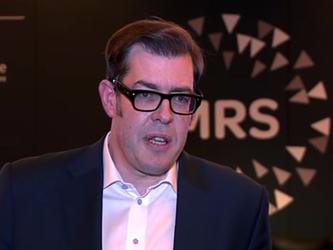Beyond the poll
Tom Mludzinski, director of political polling, ComRes admitted the days immediately after the General Election had been “undeniably difficult” but it was now about what could be changed moving forward.
He highlighted the differences between online and telephone polls and that the solutions for fixing them might be different depending on the medium.
ComRes has been testing different methods using regression analysis to try to overcome some of the representation issues such as turnout.
Cordelia Hay, associate director at BritainThinks shared some of its findings from its qualitative approach to understanding voters. “When most of the industry is talking about big data, we’re talking about small data. It shows you have people are experiencing elections.” said Hay.
She argued that its method meant it could see how voters really experienced elections – for instance in a week when there were lots of policy announcements, for voters the important things were the seven-way debate, coverage of the NHS and the couple from Scunthorpe who’d won the lottery twice. And despite leafleting, national mattered more than local.
Similarly, despite voters pleas for policy detail it was personalities they looked at. In fact it came down to two things: leadership and competency in the economy.
Personality was a strong theme in BrainJuicer’s presentation where it applied System 1 thinking to political polling. Looking specifically at its measures of fame, feeling and fluency, Orlando Wood, managing director of BrainJuicer, applied them to politicians. Fame – if a politician comes readily to mind; feeling – if you feel good about that politician; and fluency – if you recognise the politician quickly they must be a good choice.
Testing its method out on the upcoming US election raised several notable moments. Among them that Donald Trump’s hair is more recognisable than Bernie Saunders or Ted Cruz; that negative emotions dominate for both Trump and Clinton; and that fear and contempt for Trump are higher among Republicans than Democrats.
Overall, Tom Ewing, BrainJuicer’s senior director, predicted Hillary Clinton should clinch it – just.

We hope you enjoyed this article.
Research Live is published by MRS.
The Market Research Society (MRS) exists to promote and protect the research sector, showcasing how research delivers impact for businesses and government.
Members of MRS enjoy many benefits including tailoured policy guidance, discounts on training and conferences, and access to member-only content.
For example, there's an archive of winning case studies from over a decade of MRS Awards.
Find out more about the benefits of joining MRS here.













0 Comments